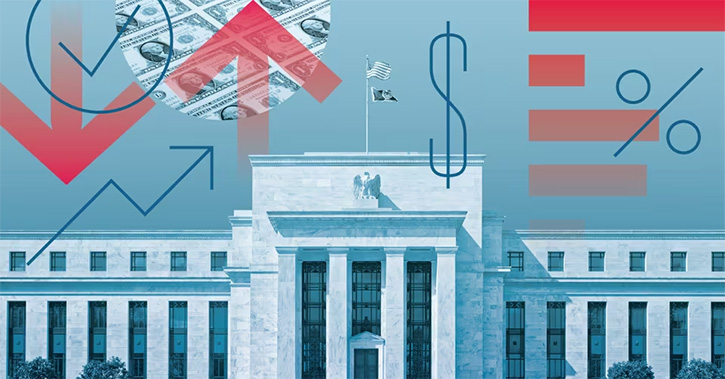Jeremy Glaser: For Morningstar, I'm Jeremy Glaser. I am joined today by Francisco Torralba--he is a senior economist at Morningstar Investment Management. He is going to give us his overview of the global economic picture.
Francisco, thanks for joining me.
Francisco Torralba: Thanks, Jeremy, for having me.
Glaser: Let's start in Europe. That's obviously been a big question mark for global growth. Are we seeing signs that the recovery is really taking hold there?
Torralba: Definitely. The short-term economic indicators are improving. Headline growth was 1.5% or 1.6% annualized in the first quarter, which is a big jump from 2014. Particularly, economic indicators related to the household sectors have improved--retail sales, consumer confidence. And even inflation, which was negative, is now zero as of April.
Glaser: So, what's driving that improvement? Is it the quantitative-easing program that the ECB launched?
Torralba: That is one ingredient, but not necessarily the only or even the main one. In chronological order, if I may, I think the first thing that happened was the finalization of the Asset Quality Review of capital ratios of banks in 2014. Now, banks are in the clear, they can lend more, credit supply is up. That's one important thing.
The second one, which partially overlaps in time, was the fall in oil prices. The eurozone is a net importer of oil, so naturally lower oil prices are good for their economy.
And third, like you said, is quantitative easing. Although it doesn't necessarily impact the real economy directly, it does seem to lift economic sentiment and asset prices.
Glaser: So, some of these issues like lower oil prices could be transitory. What's your medium-term outlook for Europe if some of these things were to turn around?
Torralba: I think the cyclical recovery is likely to continue in the medium term. There is still high unemployment and spare capacity; that's going to allow growth to be higher than it's been in 2013 and 2014. I wouldn't necessarily pop the champagne cork because the outlook is growth of about 1.5% or 2% tops. Inflation should be solidly positive in 2016, meaning somewhere between perhaps 1% and 1.5% headline inflation. And we have pockets of low growth, importantly in France and Italy. And then we have the big risk of a [Greek exit].
Glaser: Let's turn our attention to China. That's obviously been the other big question mark here. How fast is China slowing and what's happening there?
Torralba: So, short-term indicators show that there has been a slowdown in 2015, particularly in investment--both in the industrial sector and the property sector. The Purchasing Managers Index also points to a slowdown in output. The official GDP, oddly enough, was at 7% annualized, which was perhaps not coincidentally on target with the government's estimate.
In the medium term, I still think that the main story is one of rebalancing, reducing the dependence on investment for the Chinese economy, which means significantly slower growth in the next two, three, five years--something on the order of 3% to 4%. That's where I think China is heading. And I think it's been a positive development that this slowdown has been as gradual as it's been.
Glaser: What has the impact been on the Chinese stock market? What do you see there?
Torralba: Oddly enough, the Chinese market is extremely bullish. Retail investors, particularly, have been jumping on that bandwagon recently, taking lots of margin lending. To put it in perspective, margin lending is twice as high in China relative to the market cap as it is in the New York Stock Exchange. And there is no obvious fundamental reason why that should be the case. So, I'm very afraid of a reversal of that sharp increase in prices.
Glaser: So, what impact will slowing Chinese growth and the potential of the Chinese stock market being too high have on the rest of the global market? Why should we care about it?
Torralba: Well, the direct and obvious implications will be on commodity prices. One of the reasons why oil and industrial metals are so cheap today is because of China's slowdown. The industrial-machinery sector is also going to suffer because China is a big importer of sophisticated industrial machinery. I think, more broadly, the global financial sector will be impacted by a possible reversal of China's current account surplus. They have been running a huge surplus for more than 10 years, perhaps even 20 years. That is changing. And it's possible that if there is a meaningful reversal of the investment-consumption composition of Chinese growth, that China could even start running a deficit. That's going to reduce the global supply of savings, and that's going to put some upward pressure on global interest rates.
Glaser: So, is a slowing China or the risk in China your biggest concern about the global economy right now?
Torralba: It is. If you want to mention one theme, it would be China because of the multiple sources of risk. You have the property sector, excessively leveraged corporations and households, and the possible bubble in the stock market, as I mentioned before. So, it's just perhaps one too many things to worry about. That doesn't mean I'm pessimistic, overall, in the short and medium term for the global economy. The one very large bright spot that everyone, I think, has in mind already is the outlook for monetary policy.
All the major central banks--China, Japan, the ECB, the Federal Reserve--are going to keep monetary policy extremely accommodative in the medium term. Even the Fed, who is supposed to raise interest rates soon, is going to do it so gradually that I doubt it will cause major havoc. So, that's the brightest spot.
Glaser: Francisco, I appreciate your take on the global economy today.
Torralba: Thank you, Jeremy, for having me here.
Glaser: For Morningstar, I'm Jeremy Glaser. Thanks for watching.
* Disclosure
Morningstar's Investment Management group includes Morningstar Associates, LLC, Ibbotson Associates, Inc., and Morningstar Investment Services, Inc., all registered investment advisors and wholly owned subsidiaries of Morningstar, Inc. All investment advisory services described herein are provided by one or more of the U.S. registered investment advisor subsidiaries. The Morningstar name and logo are registered marks of Morningstar, Inc.
The information, data, analyses, and opinions presented herein do not constitute investment advice; are provided as of the date written and solely for informational purposes only and therefore are not an offer to buy or sell a security; and are not warranted to be correct, complete or accurate. Past performance is not indicative and not a guarantee of future results.





















